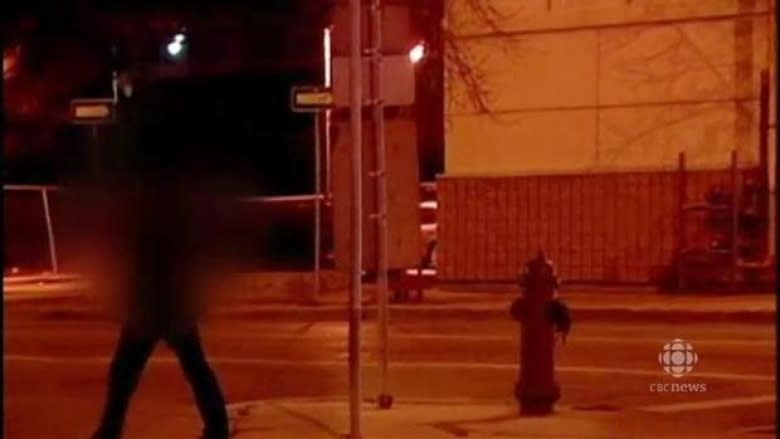Winnipeg police sex-trade task force charges 26 men age 18-77
Winnipeg police have laid charges against 26 men in a sex-trade sweep that spanned more than two weeks in August.
"In total, 26 adult men ranging in age from 19 to 77 years were arrested and charged with obtaining sexual services … and a total of 18 vehicles were seized," said Const. Jason Michalyshen. "Another 10 adult males were identified and interviewed."
The arrests were made as part of Project Create, formed on Aug. 10, to counter sexual exploitation in the city.
Michalyshen pointed to the police force's shift in focus away from criminalizing women and instead focusing on charging johns.
"A more compassionate approach has been taken," said Michalyshen, who said officers are focusing on "exploiters" like johns and pimps.
"We are using the terms exploiters because that's exactly what they are," he said.
The two-person counter exploitation team interviewed 39 women over the course of two weeks, ranging in age from 18 to 49, and provided them with information on supports like addictions services, housing supports and other services.
"The focus of this project was very localized and was meant to have an impact on the street-level sex trade," said Sgt. Cam Mackid.
Sex workers under 18 are removed from the streets and taken to places of safety, officers said.
"When we used to roll up on these girls in our cars they would scatter," said Mackid. "Over the past two years we've developed a relationship now where they're on a first-name basis with almost all the girls."
'They are being eyed up'
Annette Champion-Taylor, a volunteer and program co-ordinator with the William Whyte Residents Association, said a lot has changed in recent years in the way police address the sex trade in Winnipeg.
"We've have a lot more interaction with police officers, there's a lot more face to face," said Champion-Taylor.
She hopes targeting johns leads to safer streets, but she also believes letting sex workers operate in residential areas potentially endangers people in the neighbourhood.
"For us as a community to have sex trade workers on our street in residential areas is still a problem," she said.
"Going after the johns, the pimps, absolutely we get that. Whenever there is a sex trade worker on the street, automatically the men that are looking for these women are going to be coming around to the area, which puts other community members at risk — whether it be women, or children or anyone that is walking done the street. They are being looked at, they are being eyed up."
Tony Scott said he hopes police revise their new strategy and include a split focus that targets johns as well as drug dealers. Many sex workers struggle with addiction, Scott said, adding drug use and the sex trade tend to go hand in hand.
"They can target pimps and johns all they want, but the addiction issue comes into play," said Scott. "The drug traffickers are the ones who provide drugs to addicted people."
Ahead of the curve
Mackid said the force got ahead of the curve in a national movement to see women in the sex trade as "victims of circumstance."
"Criminalizing them wasn't working for us," said Mackid. "They might not accept our help all the time, but they're certainly willing to work with us."
In December 2013, the supreme court struck down Canada's prostitution laws.
"In a way, the law sort of came into line with our philosophy," said Mackid.
For the most part, the johns will be dealt with outside of the courts through the WPS's Prostitution Offender Program.
"In terms of court outcomes, the law for this offence (Purchasing Sexual Services), allows for up to five years in jail for a first offence, and carries a minimum fine of $1000," Mackid said. "The outcome would fall somewhere within those two extremes."




